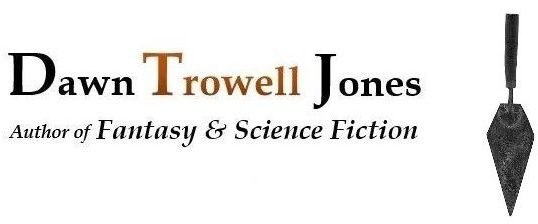 I attended an online seminar about first sentences a few days ago. I should tell you, I learn by challenging assumptions. When I’m told that out of an entire novel that takes years to polish, I have to spend a tremendous amount of energy on the very first sentence to make it fit some industry formula, I can’t help wondering whether this is true. Or is it another one of those sneaky “artist” tests that try to shake the wheat from the chaff, and see who has the nerve to be successfully irreverent?
I attended an online seminar about first sentences a few days ago. I should tell you, I learn by challenging assumptions. When I’m told that out of an entire novel that takes years to polish, I have to spend a tremendous amount of energy on the very first sentence to make it fit some industry formula, I can’t help wondering whether this is true. Or is it another one of those sneaky “artist” tests that try to shake the wheat from the chaff, and see who has the nerve to be successfully irreverent?
The “successfully” part matters, though. So how do we define success? My husband has been asking me this for years. My heart wavers between an answer I really believe and one society says I should give. So, here’s my personal mantra: Say something worth saying and do it as beautifully as I know how. Simple. Leaves plenty of room for growth.
 First sentences are important. Of course. As a writer, I have to come up with those first sentences, so I’d better get it right. Whatever right is. Maybe it’s what feels right—and does necessary work for the story. Or to put it differently: that which says something worth saying beautifully—from the start.
First sentences are important. Of course. As a writer, I have to come up with those first sentences, so I’d better get it right. Whatever right is. Maybe it’s what feels right—and does necessary work for the story. Or to put it differently: that which says something worth saying beautifully—from the start.
That being said, I decided to take a closer look at the first sentences of some books I’ve enjoyed. Based on what I see, I think it’s not so much the first sentence as the first two or three that matter. As a reader, I don’t read just one sentence and stop there. However, a bad first sentence, a truly artless sentence or two, will slow me down. A bad first page might be the end of it. But I do usually give it the whole page, and sometimes much more before giving up. Sometimes a page or two in, I’m hooked. Common errors and inconsistencies are what typically take me out, the idea being that if an author has made these mistakes up front, they’re probably everywhere, and those kinds of issues make for a stressful read.
In the online seminar I attended (Reedsy’s First Line Frenzy!, here’s the video), a moderator read out submitted first lines to an editor, one sentence, and the editor, who was seeing them for the first time, gave feedback about what worked, what didn’t, and why. Then, title and genre were disclosed, and the authors were given a chance to ask questions, if they wanted. I felt that not knowing titles and genres up front hurt the evaluation a little. It’s unlikely a real reader would be in that position—readers would know title and genre. If they’re like me, they’d be holding something of them in their heads when they read those first crucial sentences.
Okay, so here we go!
This is a classic first line. I have to include it to appease certain individuals. It’s the first line to Neuromancer by William Gibson (first published in1984):
The sky above the port was the color of television, tuned to a dead channel.
But I’d like to share the next line, too, to show the shift from setting to character. Nobody reads only the first line, as I said, and if you’re like me, you’re likely to re-read the entire first page or two to make sure you have your bearings. Here they are together:
The sky above the port was the color of television, tuned to a dead channel.
“It’s not like I’m using,” Case heard someone say, as he shouldered his way through the crowd around the door of the Chat.
 Gibson’s first sentence is famous for perfectly setting the tone, not only for the chapter, but for the entire novel. Everyone can imagine such a color and such a feel.
Gibson’s first sentence is famous for perfectly setting the tone, not only for the chapter, but for the entire novel. Everyone can imagine such a color and such a feel.
Next, we have the first two lines of Martha Wells’s Rogue Protocol, Book 3 in her Murderbot Series—again, the short first line is its own paragraph—and I’d like to point out how the second line really opens up this world:
I have the worst luck with bot-driven transports.
The first one had let me stow away in exchange for my collection of media files, with no ulterior motives, and had been so focused on its function that there had been hardly more communication between us than you’d have with a hauler bot.
The second sentence shows us how the narrative will likely flow, its style, perhaps the technical depth, and basically lets us slip further into the personality of the main character, who is an android. The sense of movement into the character is powerful.
Let’s add a well-known spy thriller from 1993. Here’s the first line of The Night Manager by John Le Carré:
On a snow-swept January evening of 1991, Jonathan Pine, the English night manager of the Hotel Meister Palace in Zurich, forsook his office behind the reception desk and, in the grip of feelings he had not known before, took up his position in the lobby as a prelude to extending his hotel’s welcome to a distinguished late arrival.
That’s a lot to take in. I had to read that one multiple times, and I’m not sure I enjoyed it. In fact, I began this book years ago and set it aside only a few pages in. I knew other people had enjoyed it, and I used to read a lot of spy novels when I was a teenager, so a couple of years back, I finally pushed through. In the end, I did enjoy the story. So, there. That’s how this works—and how it doesn’t. Was me putting the book aside the first sentence’s fault? Not on its own. The next line is short: “The Gulf war had just begun.” Le Carré chose to switch off, long then short, backwards from how some other authors do it.
 Kai Ashante Wilson’s novella A Taste of Honey is a fantasy story I especially loved. It has an unusual narrative style. Technically, the first line is a quote from an actual nineteenth-century Spanish poet. Many authors start with quotes. However, we should skip to the first line that is Wilson’s story:
Kai Ashante Wilson’s novella A Taste of Honey is a fantasy story I especially loved. It has an unusual narrative style. Technically, the first line is a quote from an actual nineteenth-century Spanish poet. Many authors start with quotes. However, we should skip to the first line that is Wilson’s story:
Backlit in the bright doorway, a silhouette shouted into the nighttime street: “Hey, beautiful,” and the foreign soldier called again. “Hey!”
And then, with the next two sentences, Wilson places us further into the scene and gives us a sample of the tonal balance he’s going for. We get a sense there will be a contrast between the dialogue and the narrative. If you didn’t know, Wilson is celebrated for his excellent dialogue:
Backlit in the bright doorway, a silhouette shouted into the nighttime street: “Hey, beautiful,” and the foreign soldier called again. “Hey!”
Aqib glanced over his shoulder. A man should glimpse, shouldn’t he, when some lovely woman is walking just behind?
Another novel praised left and right is Station Eleven by Emily St. John Mandel. Her first two lines:
The king stood in a pool of blue light, unmoored. This was act 4 of King Lear, a winter night at the Elgin Theatre in Toronto.
Mandel has set the stage, if you will. Although we don’t know why a play is important and don’t get a sense we’ve been introduced to a main character, we know going in that it’s a near-future post-apocalyptic thriller, so we can guess we’re being shown the before. Still, “unmoored” stands out, doesn’t it? It sets a tone.
The last of my established examples is from Frank Herbert’s Dune, the first book of my all-time favorite sci-fi series. He does something interesting here, for our purposes. Not a prologue (“Boo! Don’t do it!” say the agents)—the entire series begins with a paragraph from a reference entry. (Herbert’s far from the only one to do it, by the way.)
A beginning is the time for taking the most delicate care that the balances are correct.
But if you weren’t sure you wanted to read Dune, you might be impatient with a reference entry and scan ahead to learn what this sectioned-off piece is, and who wrote it. Then, you’d probably jump to the first sentence of the main narrative. This way, arguably, Herbert gets two first lines. In doing this, he hooks us. Here they are together, with added ellipses where our eyes would initially skip.
A beginning is the time for taking the most delicate care that the balances are correct.
…
—from “Manual of Maud’Dib” by the Princess Irulan
In the week before their departure to Àrrakis, when all the final scurrying about had reached a nearly unbearable frenzy, an old crone came to visit the mother of the boy, Paul.
 We have a historical context, we have a philosophical context, and four (or five) major characters brought up right away—and by the end of this “real” first sentence, we’ve landed on the most important character: Paul.
We have a historical context, we have a philosophical context, and four (or five) major characters brought up right away—and by the end of this “real” first sentence, we’ve landed on the most important character: Paul.
One more for fun! The first two sentences of The Last Kingdom (The Saxon Chronicles) by Bernard Cornwell are fascinating for their simplicity, but they tell us a lot beyond just the main character’s name: he’s from a prior era, family is important to him, and he’s not fussy about his speech—he’s direct—and yet he has a powerful sense of rhythm that suggests an almost poetic sophistication:
My name is Uhtred. I am the son of Uhtred, who was the son of Uhtred and his father was also called Uhtred.
First sentences need to place the reader directly into the story by establishing to some degree the who, where, and when, and a first hint of why. Not a why that’s spelled out, usually, but an implied why. In the case of Uhtred, his “why” may be his heritage and his passion.
You saw this coming, right? I’m going to put myself on the line! Here are the first sentences to the novel I’m querying titled The Long Last of Mary B. Tate, which is an epic adult contemporary fantasy.
Outside, bushes shimmied, and only brief interludes of shade, a cloud or a stand of trees, eased the sun’s intensity. Bryan liked to complain she took the curves too fast. Mary glanced at him, hoping to catch him looking back, but all she got was his profile.
 My novel that I’m currently editing, I’m Your Goat, is a dark near-future sci-fi and supernatural blend. Yes, try saying that ten times fast. But it helps to know, don’t you think? Because this one is a work-in-progress, the first sentences may change, but of course any work may change prior to publication.
My novel that I’m currently editing, I’m Your Goat, is a dark near-future sci-fi and supernatural blend. Yes, try saying that ten times fast. But it helps to know, don’t you think? Because this one is a work-in-progress, the first sentences may change, but of course any work may change prior to publication.
Here are the first sentences of I’m Your Goat, which in combination with the title and genre should propel the reader into the story:
It was to be a transition, taken by increments:
This wasn’t where Tamr had expected to find herself. It was where she’d landed, a worn, whitish carbon quickrete shelf reserved for interlopers—not for regulars, who used the pews.
If you’d like to weigh in, I’d love to hear. I expect readers may be just as passionate about the topic as authors, but possibly with less frustration.
I hope you’ve enjoyed this lighthearted post today. I’ve enjoyed putting it together. Take care of yourselves!

